Counting skills Numbers Worksheets for Ages 3-5 - Page 6
135 filtered results
-
From - To
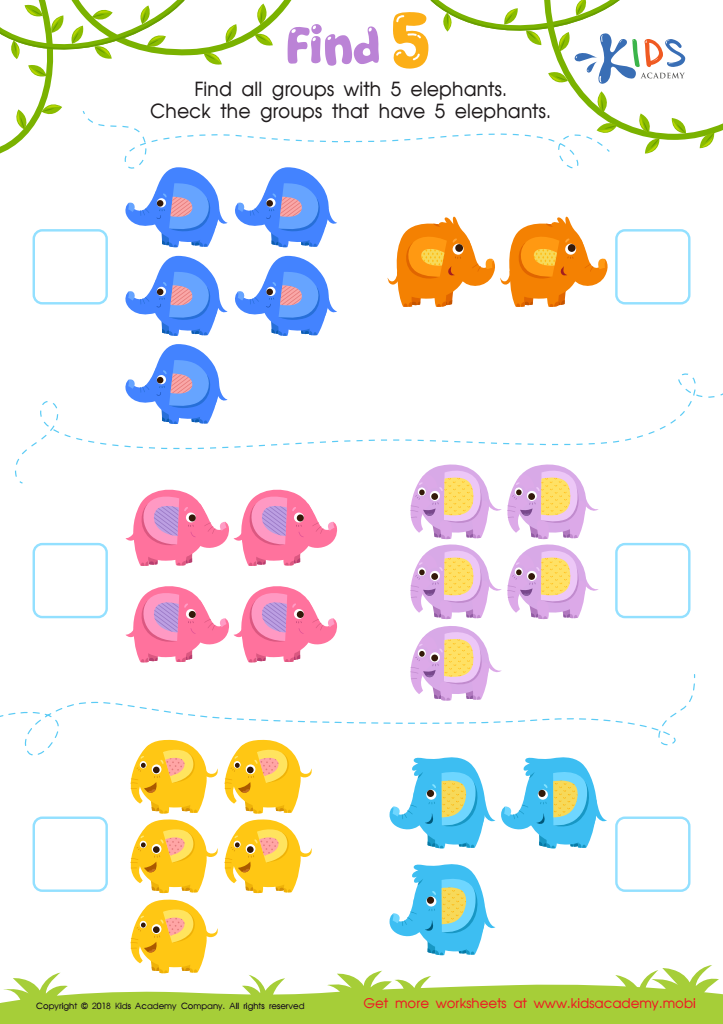

Find 5 Worksheet
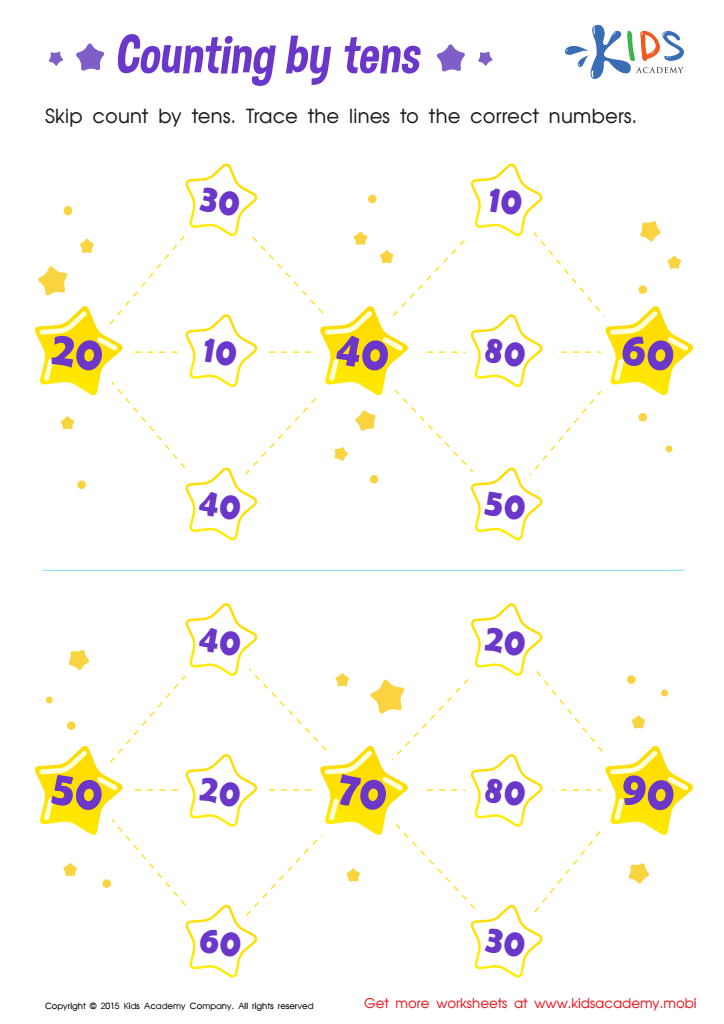

Learn Dozens: Counting by Tens Printable
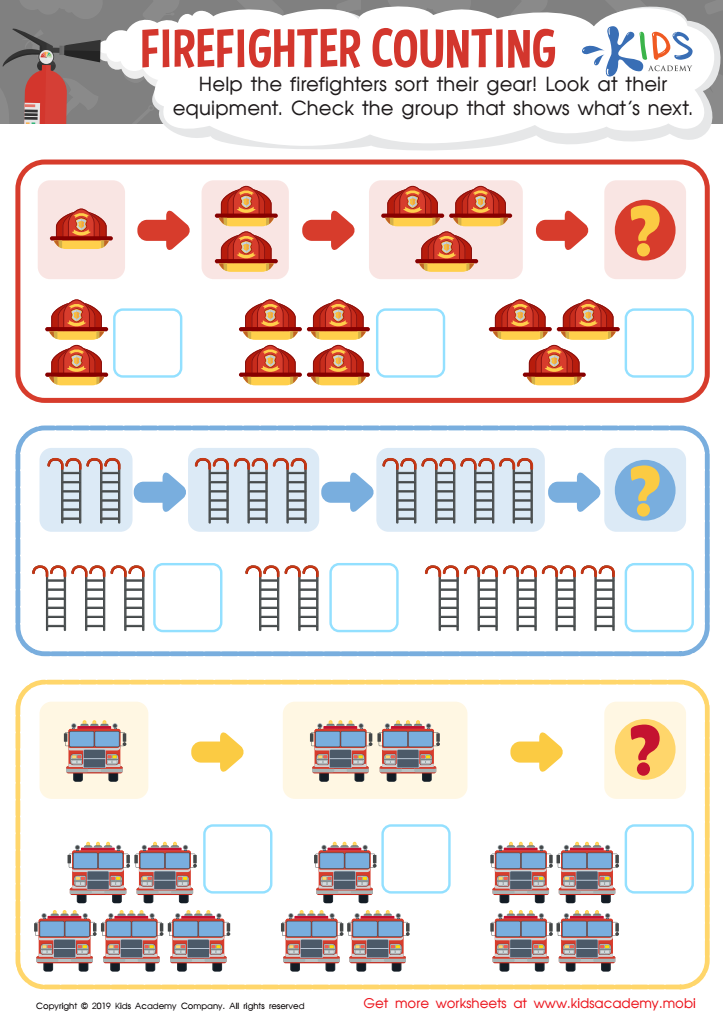

Firefighter Counting Worksheet
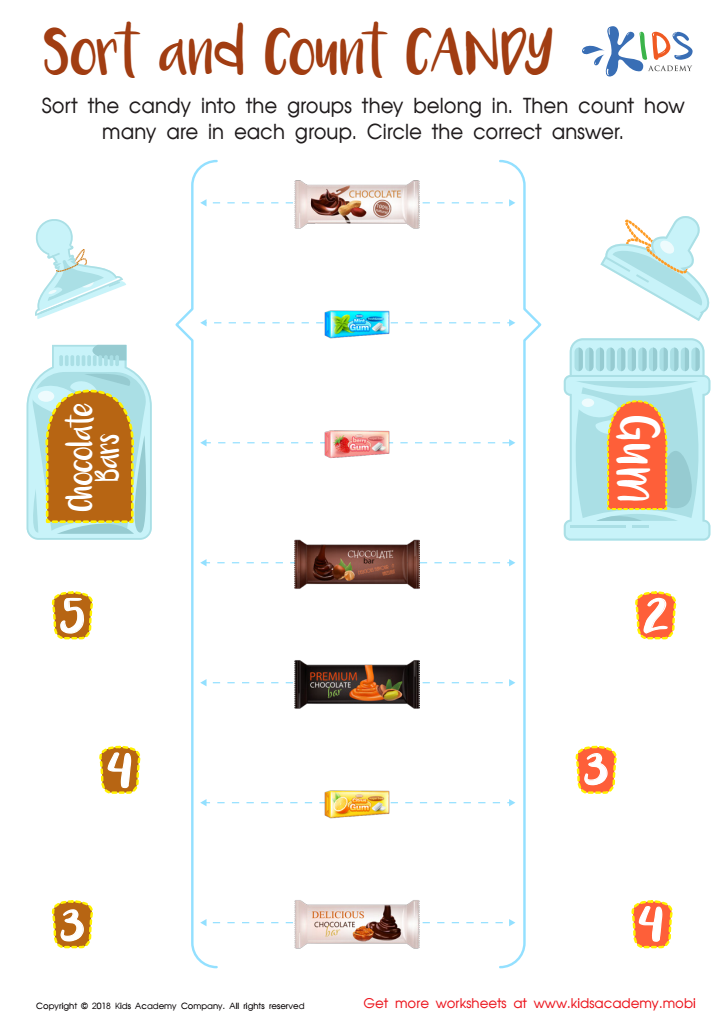

Sort and Count Candy Worksheet
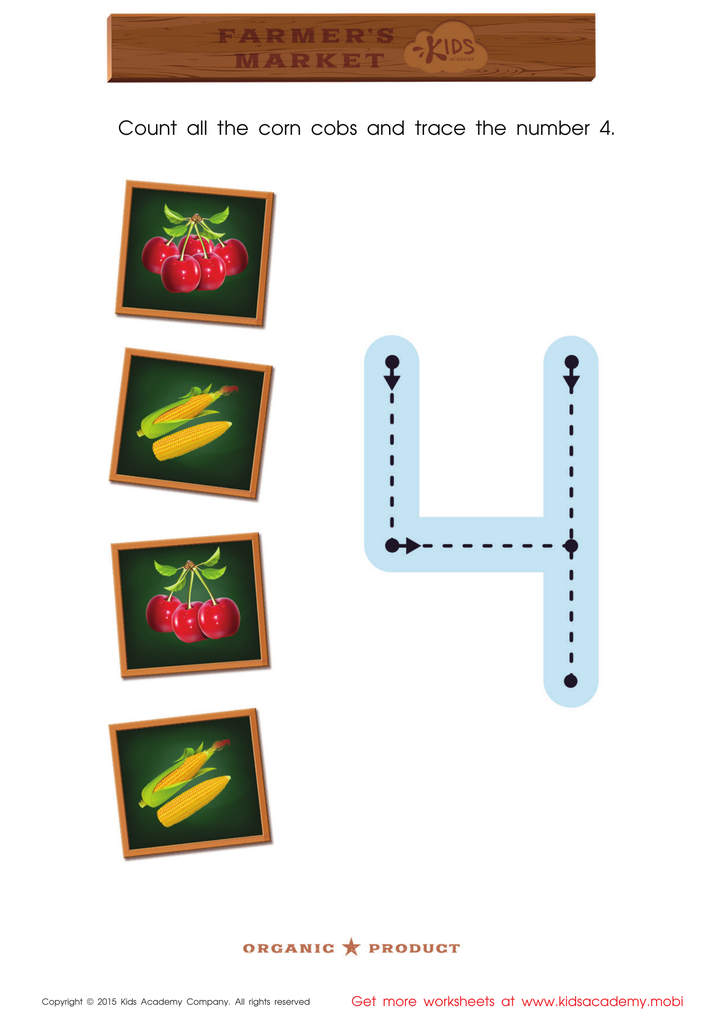

Count the Corncobs and Trace the Number 4 Worksheet
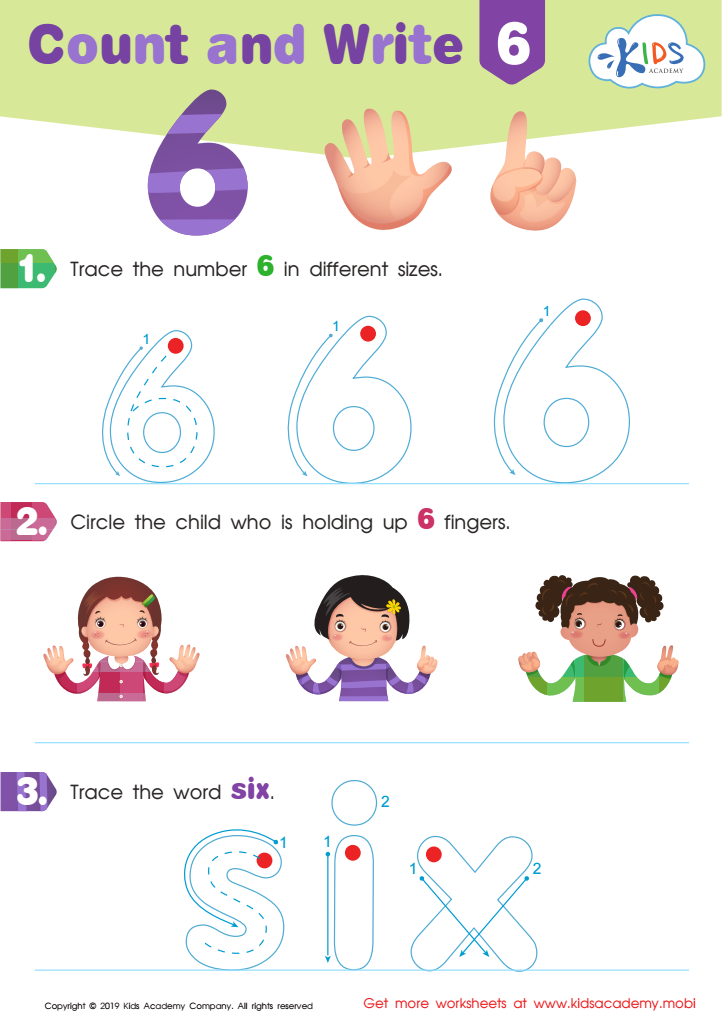

Count and Write 6 Worksheet
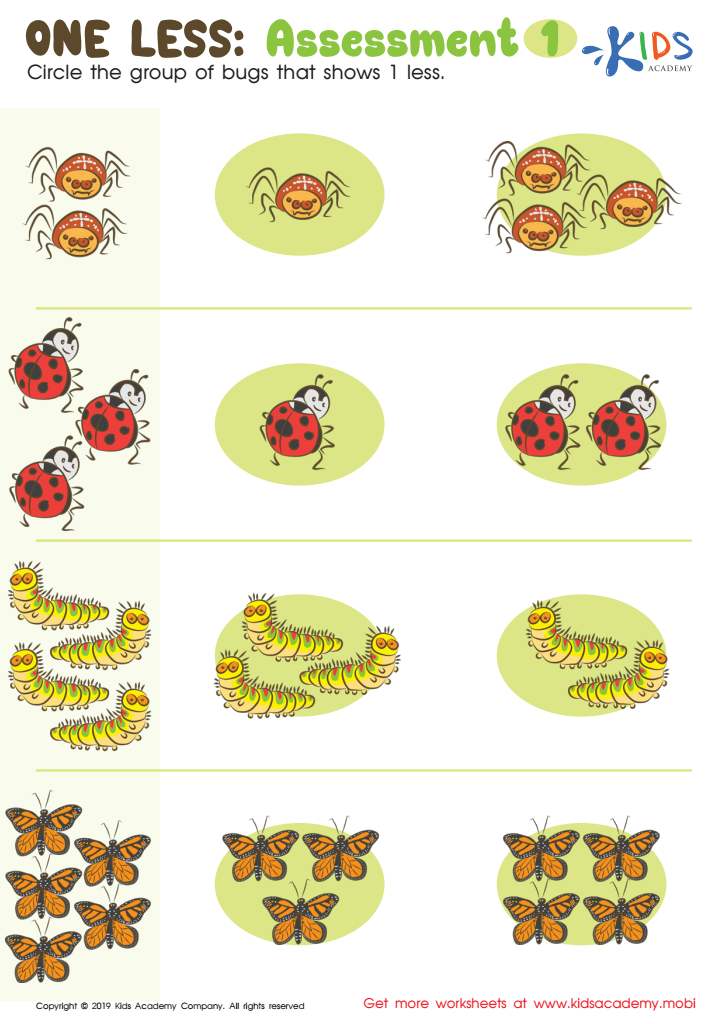

One Less: Assessment 1 Worksheet
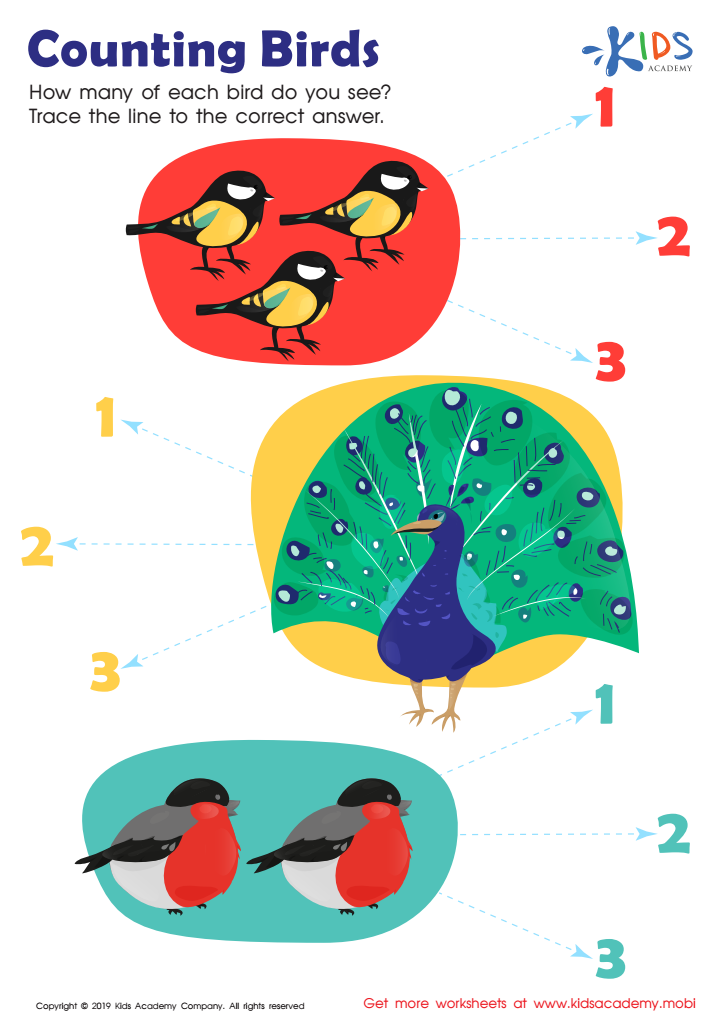

Counting Birds Worksheet
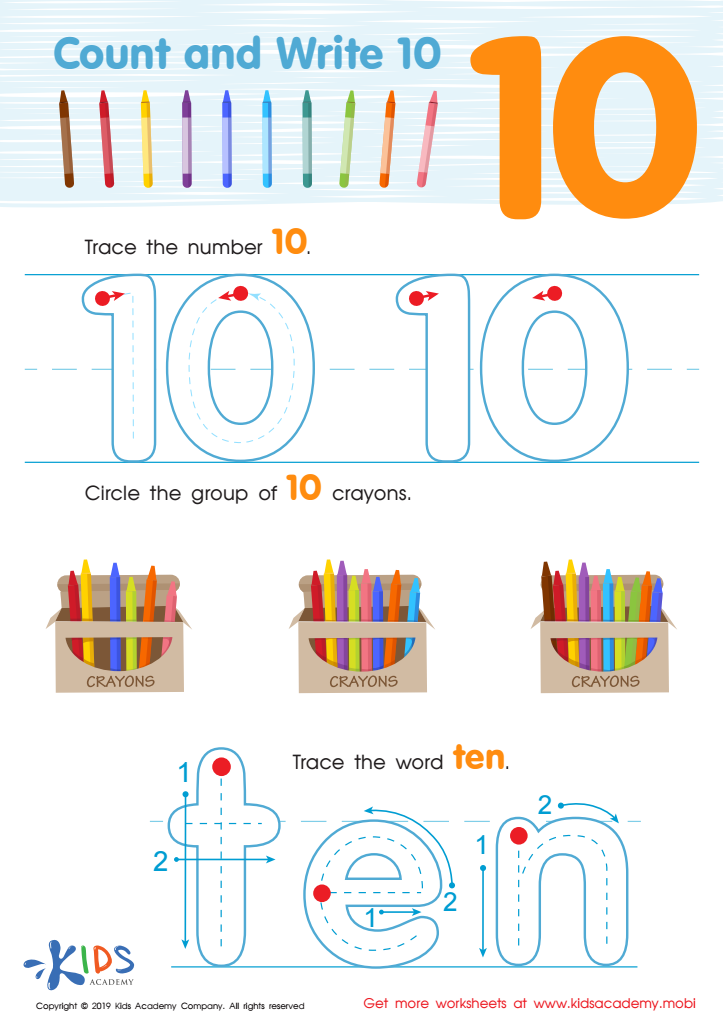

Count and Write 10 Worksheet
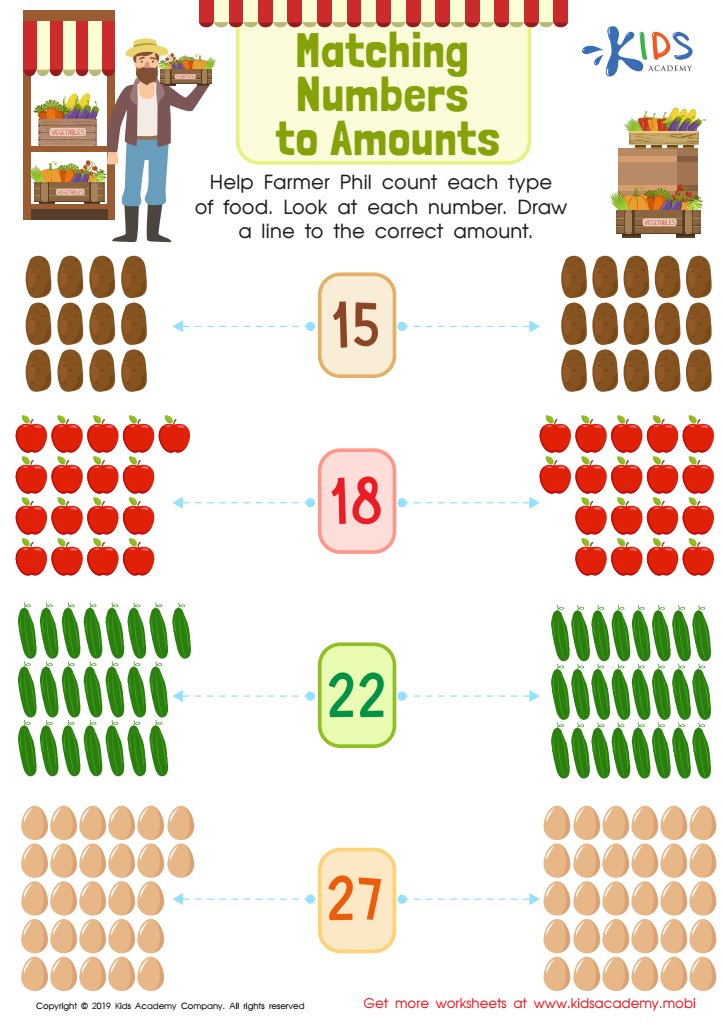

Matching Numbers to Amounts Worksheet
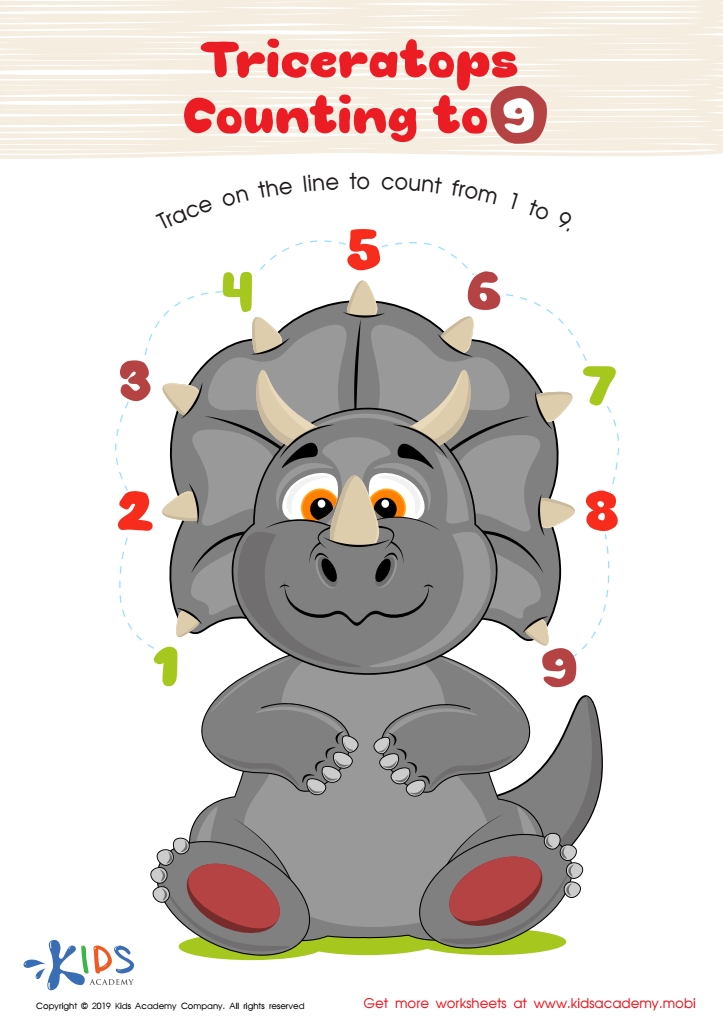

Triceratops Counting to 9 Worksheet
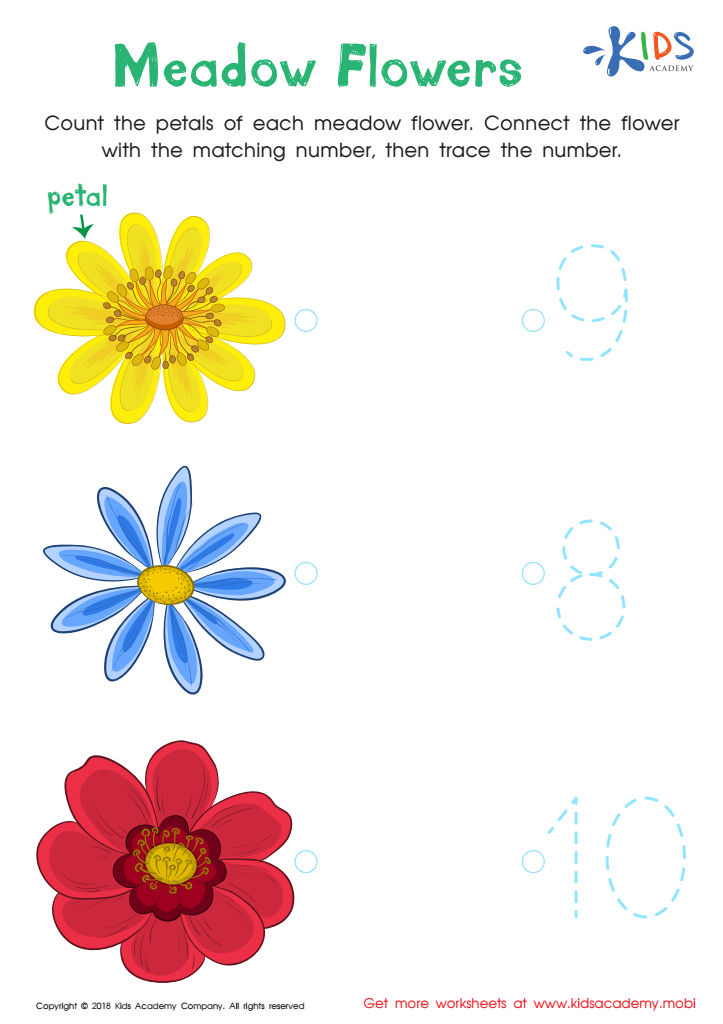

Kindergarten Number Tracing: Medow Flowers Worksheet
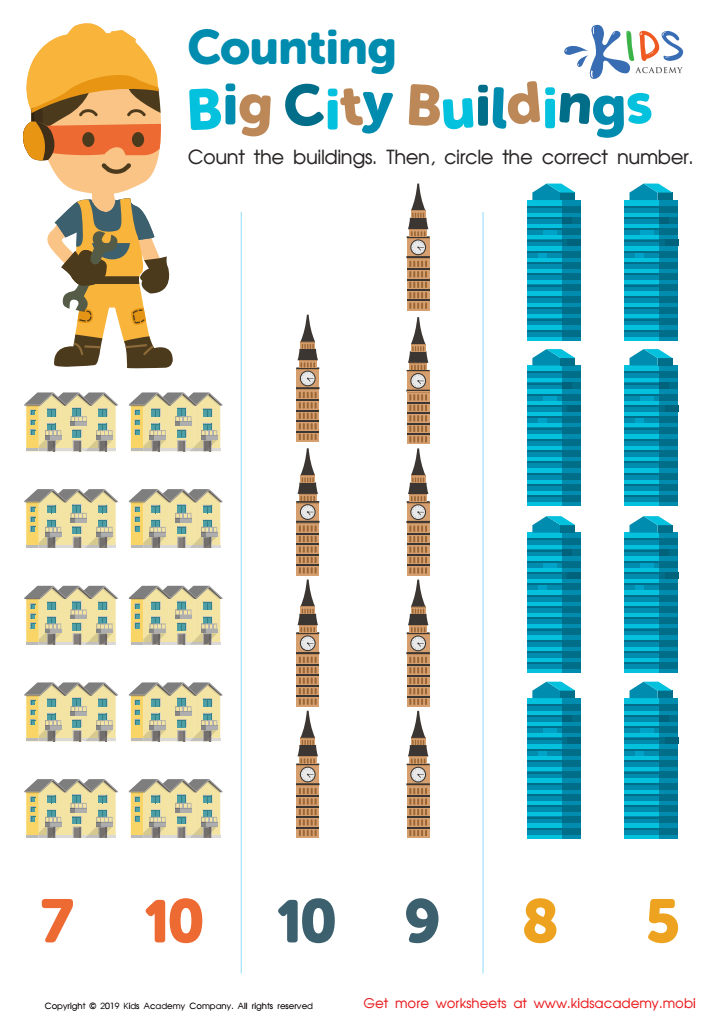

Counting Big City Buildings Worksheet
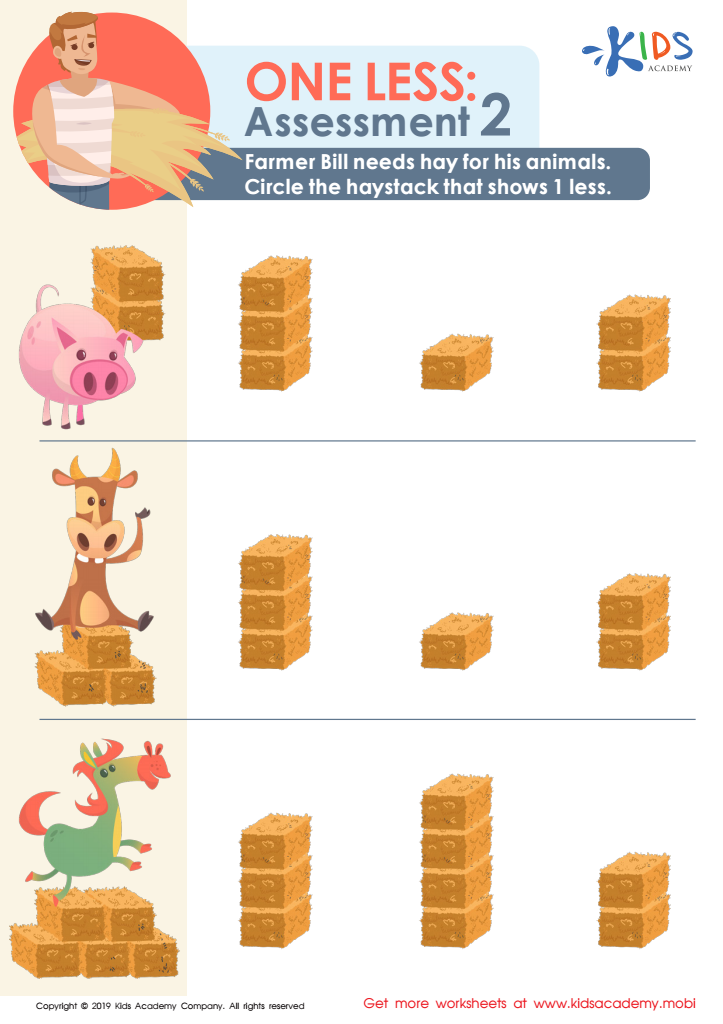

One Less: Assessment 2 Worksheet
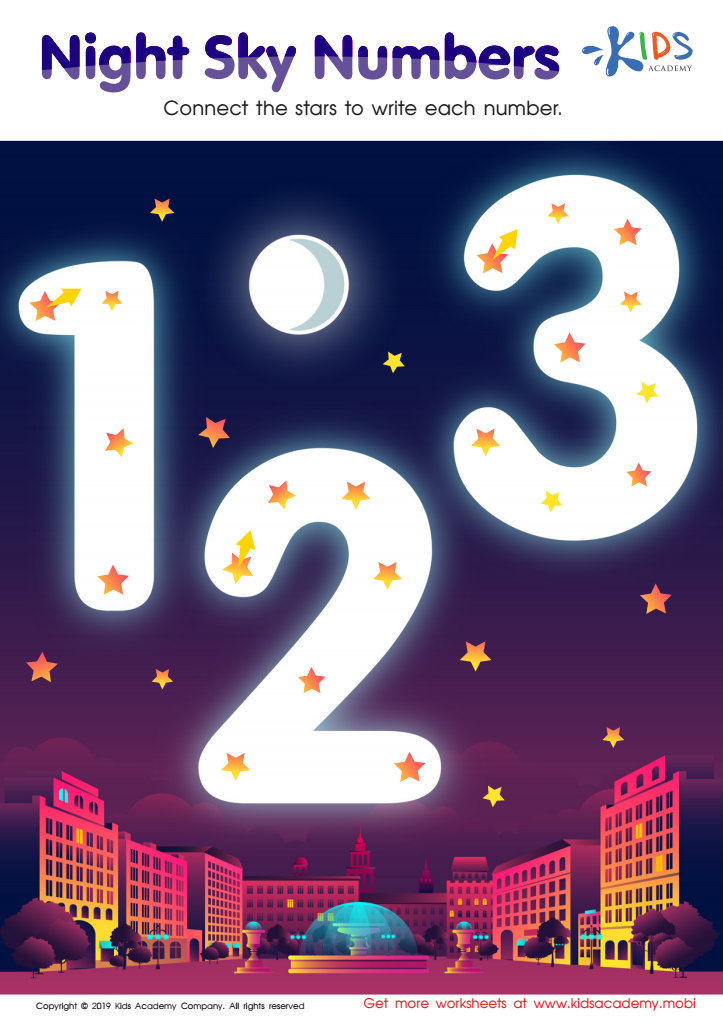

Night Sky Numbers Worksheet
Counting skills are foundational for early childhood education, particularly for children aged 3-5. During this crucial developmental stage, children are naturally curious and eager to learn about their environment, which includes quantitative concepts. By fostering counting skills, parents and teachers provide children with essential tools for future learning in mathematics and problem-solving.
At this age, children develop a basic understanding of quantity, number sequences, and one-to-one correspondence. Engaging in counting activities helps children make sense of the world around them, enhancing their cognitive development and critical thinking skills. Moreover, these skills promote confidence and a positive attitude toward mathematics as they progress in their education.
Counting skills also play a significant role in language development. As children learn to count, they are exposed to new vocabulary and ideas, facilitating rich discussions and logical reasoning. This early exposure sets the foundation for more complex mathematical concepts later on, such as addition and subtraction.
Ultimately, by prioritizing counting skills, parents and teachers contribute to a child's overall growth, encouraging curiosity and a love for learning that will benefit them across all subject areas and throughout their academic journey. Investing time in this essential skill from ages 3-5 lays the groundwork for lifelong learning.
 Assign to My Students
Assign to My Students




















